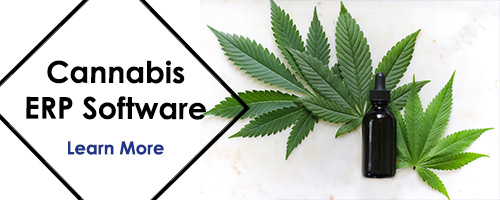With conferences around the world, MJBizConINT'L is where business, research, and policy intersect to advance the global cannabis industry. Each business conference welcomes global cannabis executives from mature and emerging markets to network and learn through educational sessions with discussions on conditions, market trends, future opportunities, regulatory considerations, research, science and more. This past week was the Toronto edition of the MJBiz Conference held at the Metro Toronto Convention Centre from September 4th to the 6th. The Toronto conference included keynote speaker Kim Campbell, former Prime Minister and other noteworthy speakers including Mark Zekulin, CEO of Canopy Growth Corp., Kevin Murphy, CEO of Acreage Holdings in the US, Alfredo Pascual, International Analyst at Marijuana Biz Daily, Kay Tamillow, Director of Research, Brightfield Group, Trina Fraser, Partner at Brazeau Seller Law and more. The conference included more than 40 sessions covering topics ranging from opportunities in hemp and CBD, to Cannabis 2.0 regulations, to different global market outlooks and future predictions. As an international conference, the show provides opportunities to learn more about opportunities and regulations in areas outside of North America, and provides ample examples of countries and cities that have done it right, as well as cautionary tales. With so many great sessions and speakers, there was a lot of information to take in, but I’ve compiled a list of some of the most important learning points from the show.
International Market Opportunities
- Outside of North America, the Germany market is one of the biggest in terms of future opportunities in medical Cannabis sales due to it’s aging population and regulations. Germany is currently depending explicitly on imports for flower product.
- There has been minimal activity on the recreational side in Europe, however, as smaller countries start to legalize, this may have a positive impact on larger, neighboring areas.
- Within Latin America, there are huge opportunities with countries such as Mexico which is on track to become the 3rd largest country in the world to Federally legalize Cannabis.
- The biggest issues for some international markets are not legalization, but supply chain. Many international markets have a legalization framework, but no infrastructure for supporting consumer demand.
- If Asian countries such as China decide to legalize, this will have huge impacts on the market due to the population size – even if 1% of the China market purchases Cannabis product, this presents a significant revenue stream.
The US Market
- The USA is by far the largest market and this is anticipated to continue to grow, especially if Cannabis becomes Federally legalized.
- Overall, a lack of good data makes sales estimates tricky, but many states are starting to provide monthly updates on the number of medical Cannabis patients and recreational sales numbers which will continue to aid in future market predictions.
- There are more medical Cannabis markets in the US, but they are smaller in size than recreational markets.
- Recreational markets are more valuable, but also more competitive.
- In the US, we have started to see more and more Eastern states legalize which is helping to grow the whole market.
- Industry experts from other markets such as CPG are helping to grow the industry through consolidation and supply chain expertise.
- Continued US market growth will come from both recreational and medical sales, however, this leaves the question of where certain CBD-type products fall (think beverages, skin care products, etc.)
- In the US, the mass market demand is not coming from flower products but instead from edibles, vapes, oils etc.
- For both medical and recreational Cannabis users, it’s less about traditional smoking methods and more about alternative ways to consume. This is a lesson for all LPs to have a plan in place for focusing on product development outside of just flower product in order to survive in the future.
- For those interested in flower products, it will be for premium flower grown in top-notch facilities. Right now, there is a lack of supply of high-quality flower.
The Canadian Market
- There were several issues with the original Cannabis legalization in Canada including lack of supply.
- Due to the initial and on-going shortage of Cannabis products, brands have been unable to develop the full consumer experience and instead consumers are forced to buy only what is available.
- This issue is amplified by strict regulations around marketing and the ultimate goal in the recreational Cannabis space is to develop the market for different types of consumer groups – for example, budget consumers vs. those who want a more premium product experience.
- Canadian companies like Canopy, are leading the industry in terms of investment and intellectual property (IP). IP for products such as pre-roll machines and processes such as extraction is helping to shape the global market.
Cannabis 2.0 in Canada
- Cannabis 2.0 in Canada refers to the upcoming October 2019 regulations and legalization around the extraction market, topicals and edibles.
- Many industry experts believe that the long-term profitability of Cannabis product will come from either vape sales or beverage sales.
- Cannabis beverages provide a social consumption opportunity with additional benefits including low calories and no hangover.
- Companies can start to take advantage of this opportunity by developing IP that goes into delivering an enjoyable social experience.
- Regulations around edibles and topicals leave a lot of room for interpretation – right now Health Canada has set out guidelines that make it very clear what businesses can’t do, but not what they can do. There is no closed list of the specific types of products a business is allowed to create.
- One of the biggest surprises around the October 2019 date is the requirement that organizations manufacturing Cannabis products must have a separate manufacturing facility for infused products and non-infused products. This will potentially reduce the number of “ready” licensed manufacturers and begs the question of what constitutes two separate facilities?
- Currently there is no requirement for the automatic transfer of testing data from labs to back-end business management seed-to-sale software, which means it is up to each company to determine what information they input manually and report on. This raises concerns around testing standards, product specs and which data sets to include from multiple labs and testing facilities.
- Some Cannabis companies are trying to vertically integrate and “do-it-all” – cultivation, extraction, manufacturing etc., but this is not a sustainable business model – especially in the start-up space and instead Canadian companies should focus efforts on one area of the market and doing it well.
- All edible products will have to be “shelf-stable” which makes chocolate products a risky choice.
- The Quebec market is trying to impose its own extremely restrictive regulations.
- In general, its hard to know what types of products will get approved by Health Canada the quickest, and although there are a lot of general rules guiding the industry (such as restrictions on adding sweeteners to extracted products) there is no clear definition as to what makes something a sweetener vs. a flavor and these types of questions will be addressed on a case-by-case basis.
Attending these types of conferences is important for keeping up-to-date and getting a head start on industry best practices and future regulations and market predictions. However, its important to note that the industry as a whole is constantly changing and there are still a lot of unknowns and contradictory information being presented. As a representative of Blue Link ERP, I attended the show to learn more about what’s happening in the industry to continue to build out our Cannabis software solution.
About Blue Link Cannabis ERP
With over 20 years’ experience as an all-in-one inventory management and accounting ERP solution, Blue Link has been helping businesses streamline and automate processes for decades. Blue Link’s robust lot tracking and reporting functionality for pharmaceutical distribution companies has helped us develop specific features and reports to aid in meeting Cannabis regulatory requirements set out by Health Canada and other regulatory bodies. In addition to Cannabis-specific functionality, Blue Link provides tools for warehouse management, CRM, financials, inventory, order entry and processing, pick, pack and ship and works with industry partners for your pre-harvest and post-harvest cultivation needs, and eCommerce requirements.











